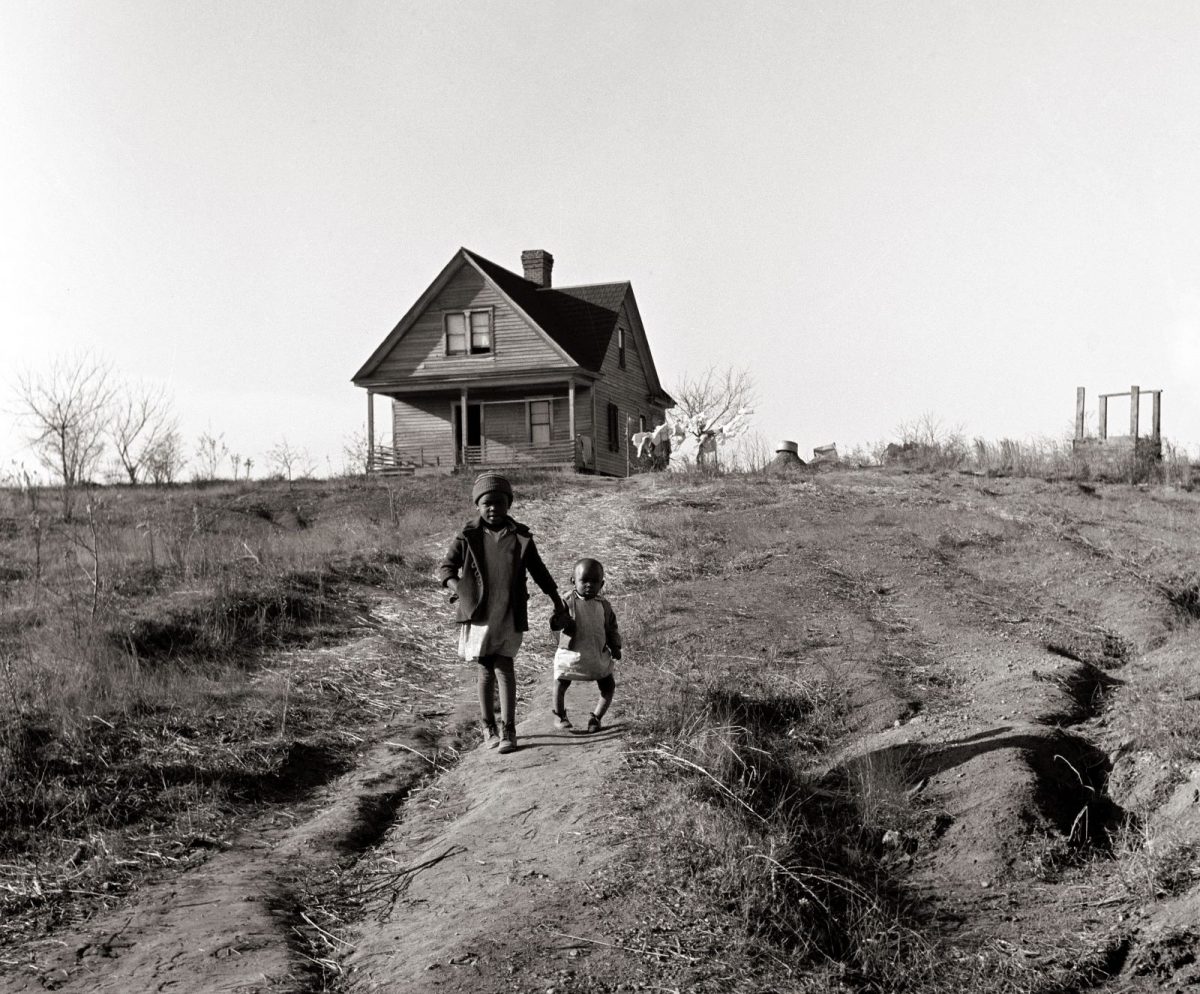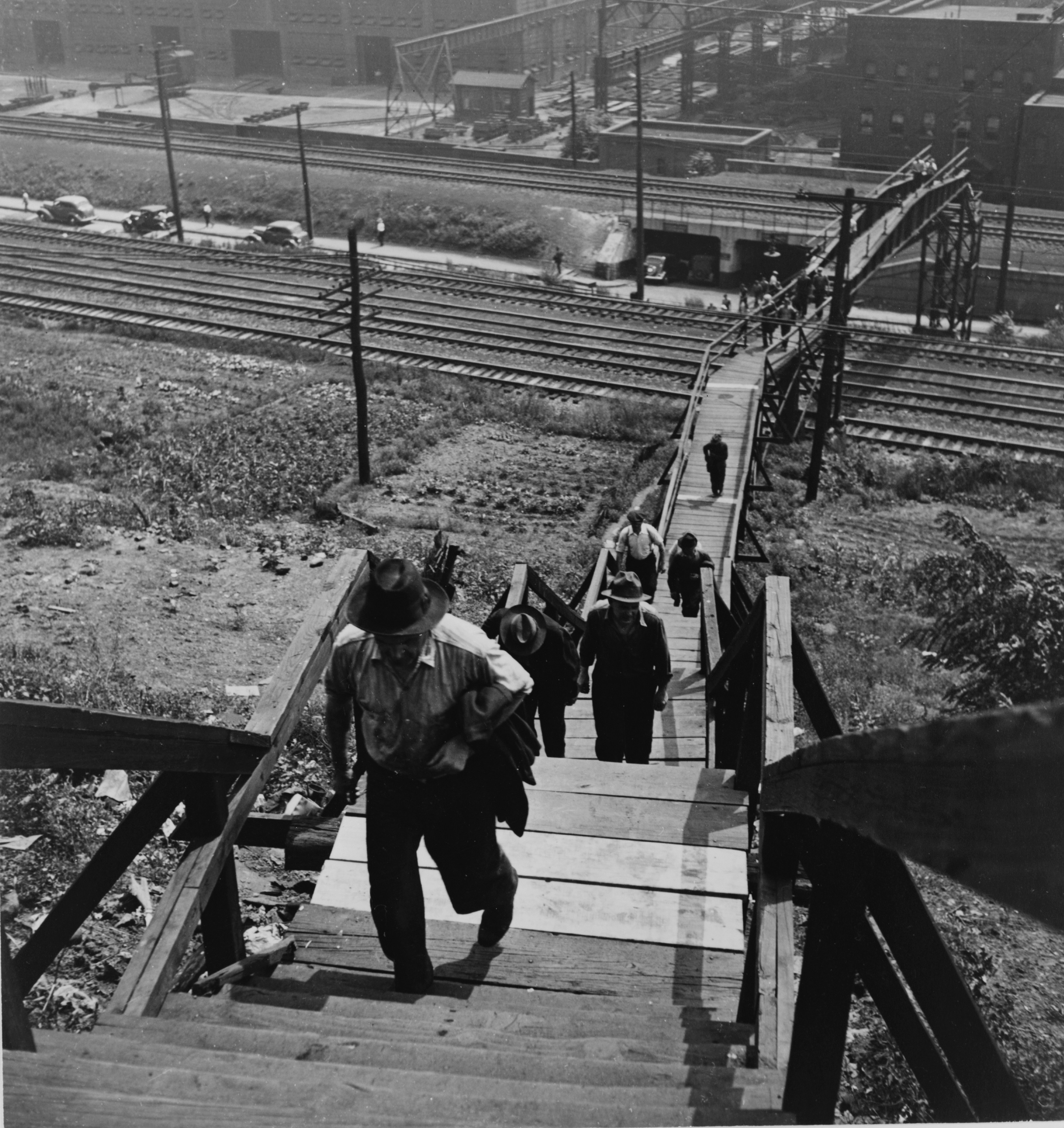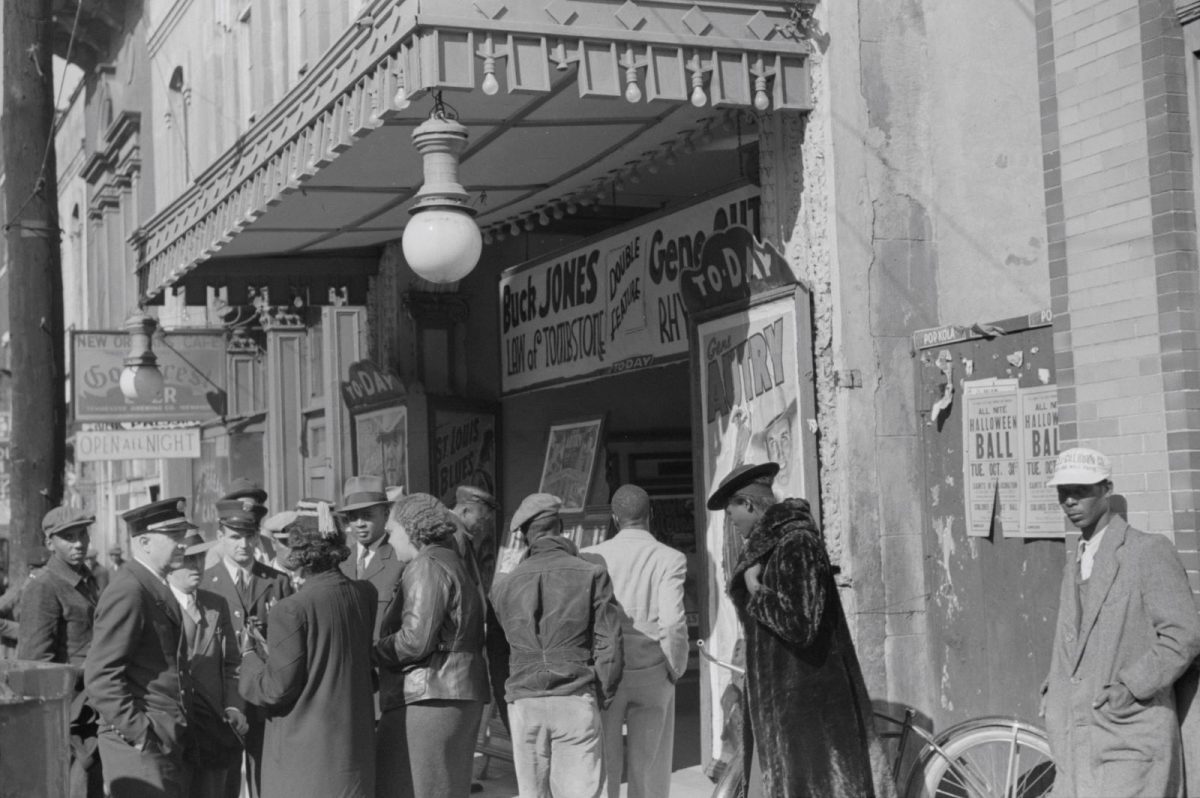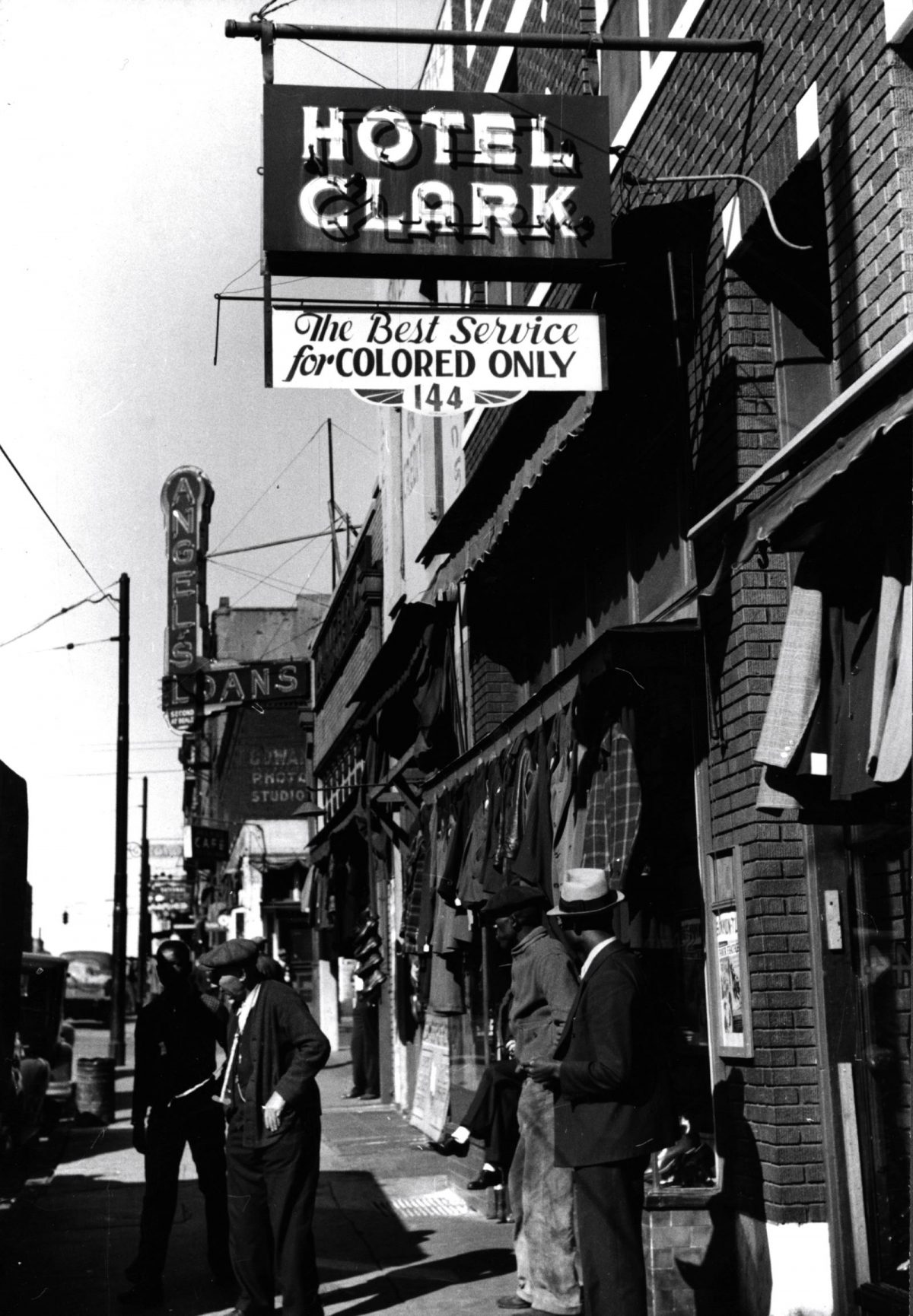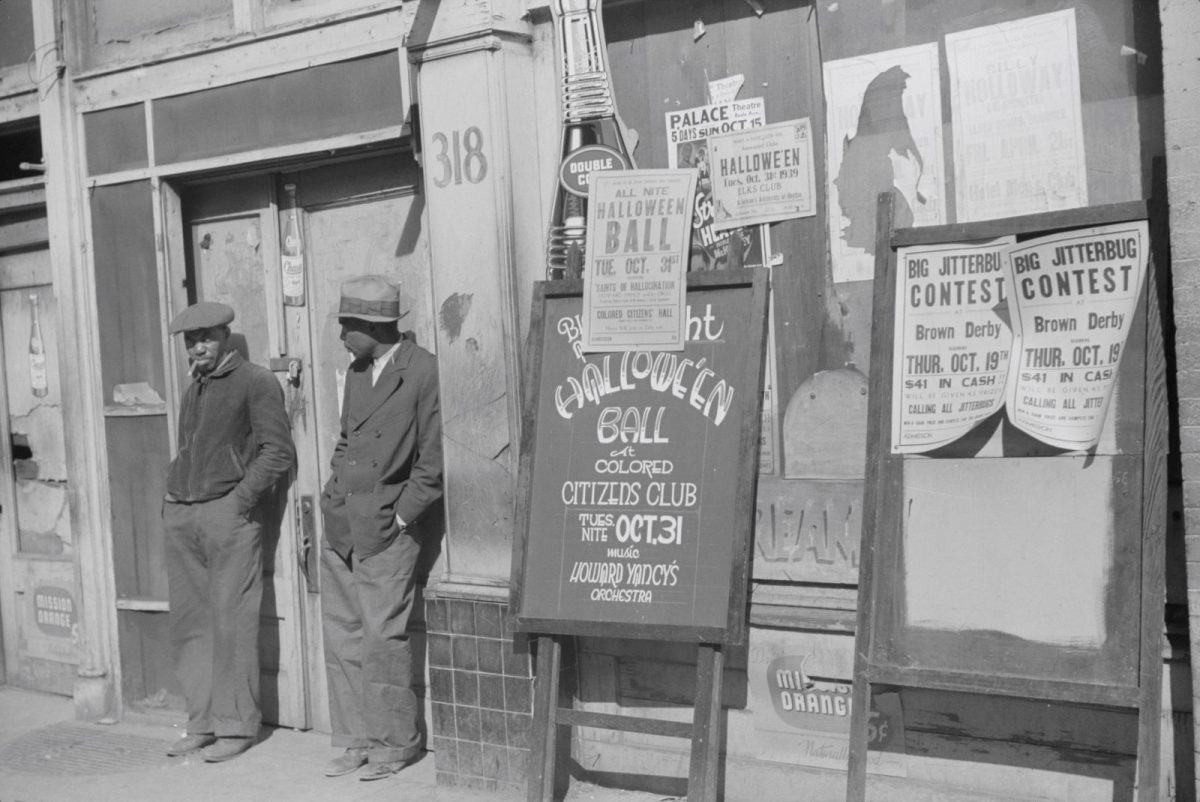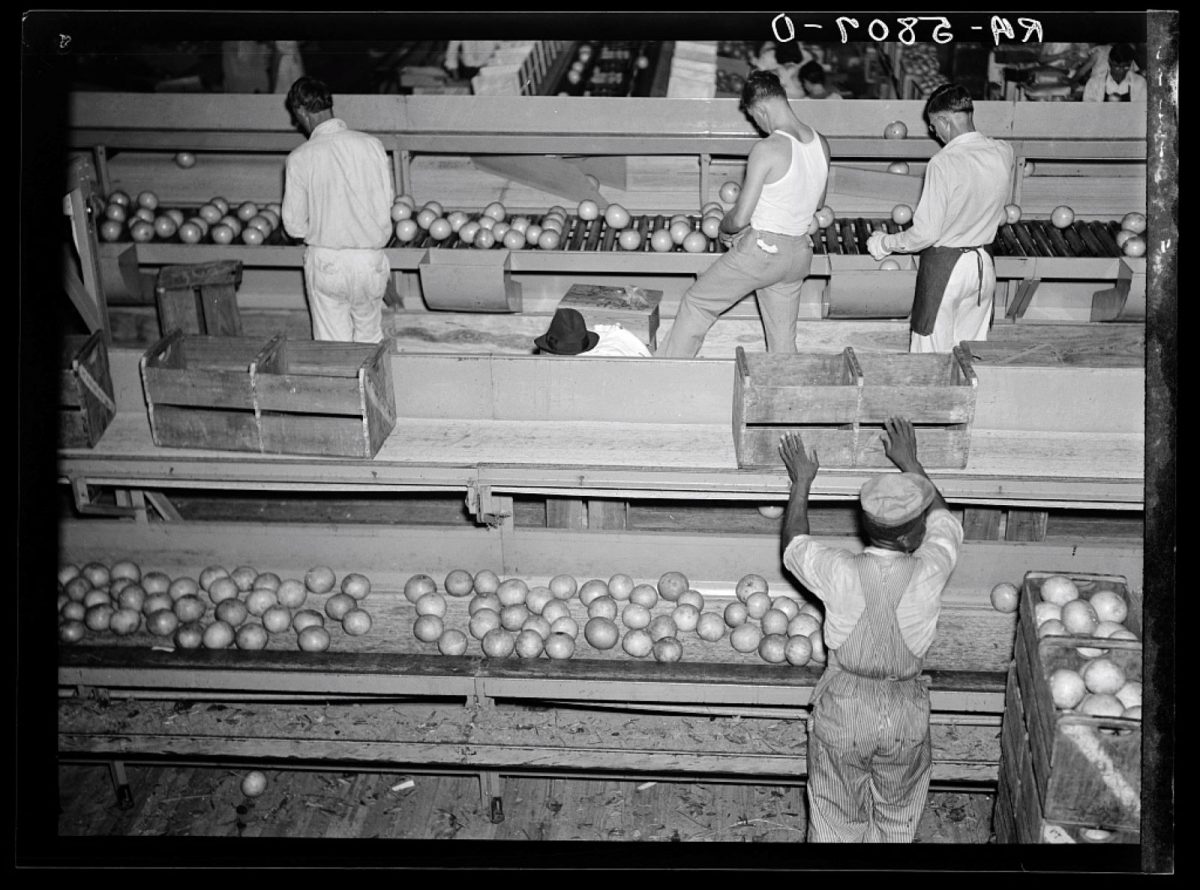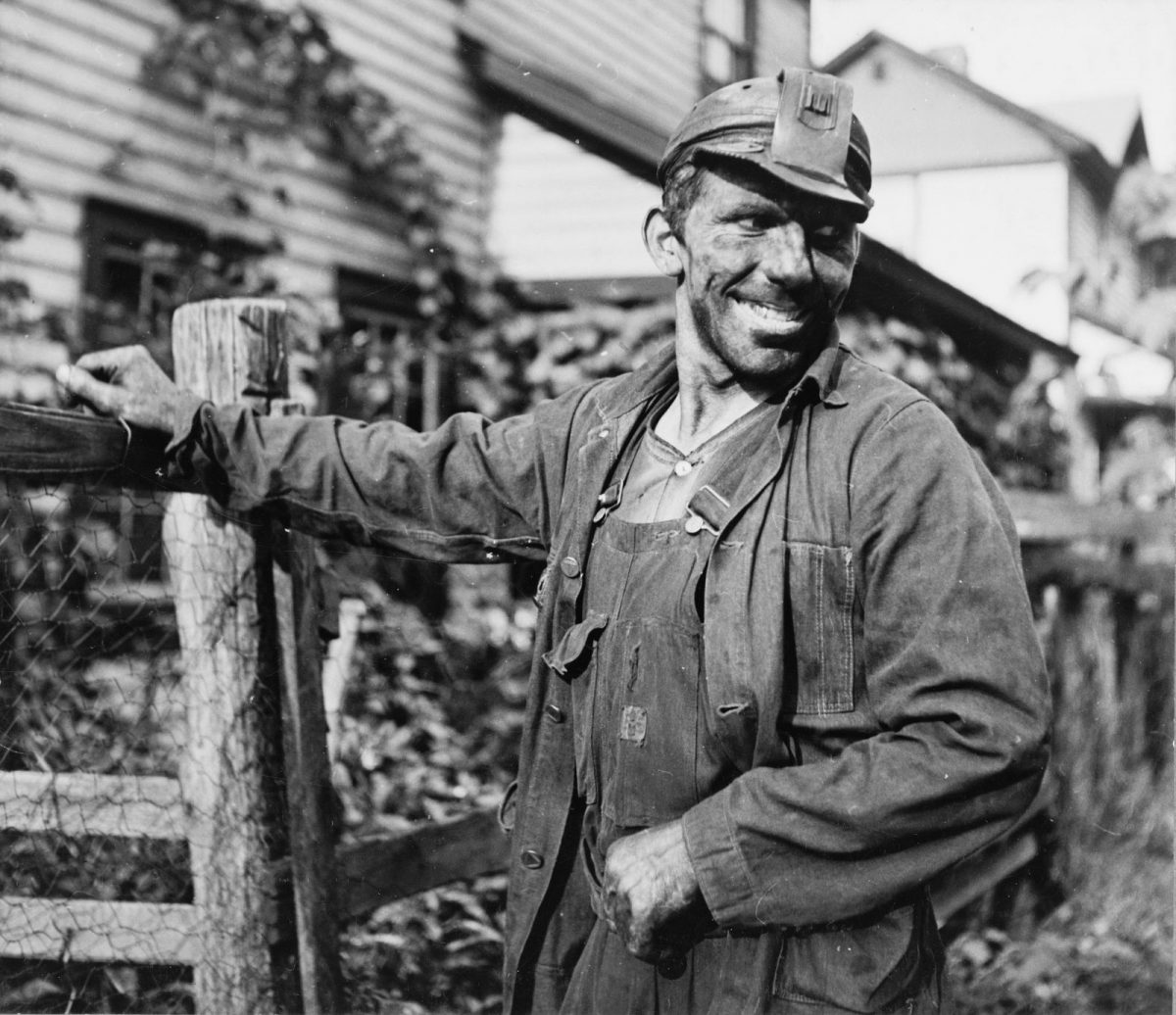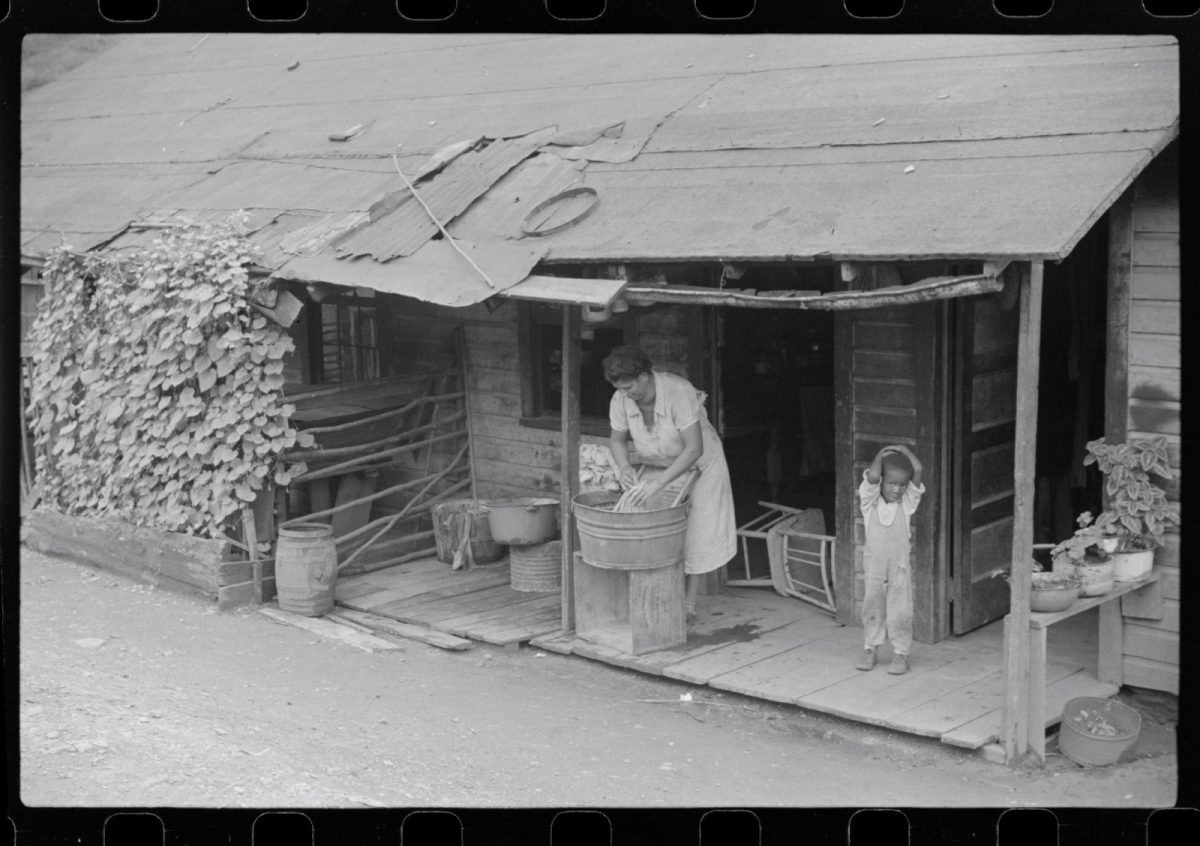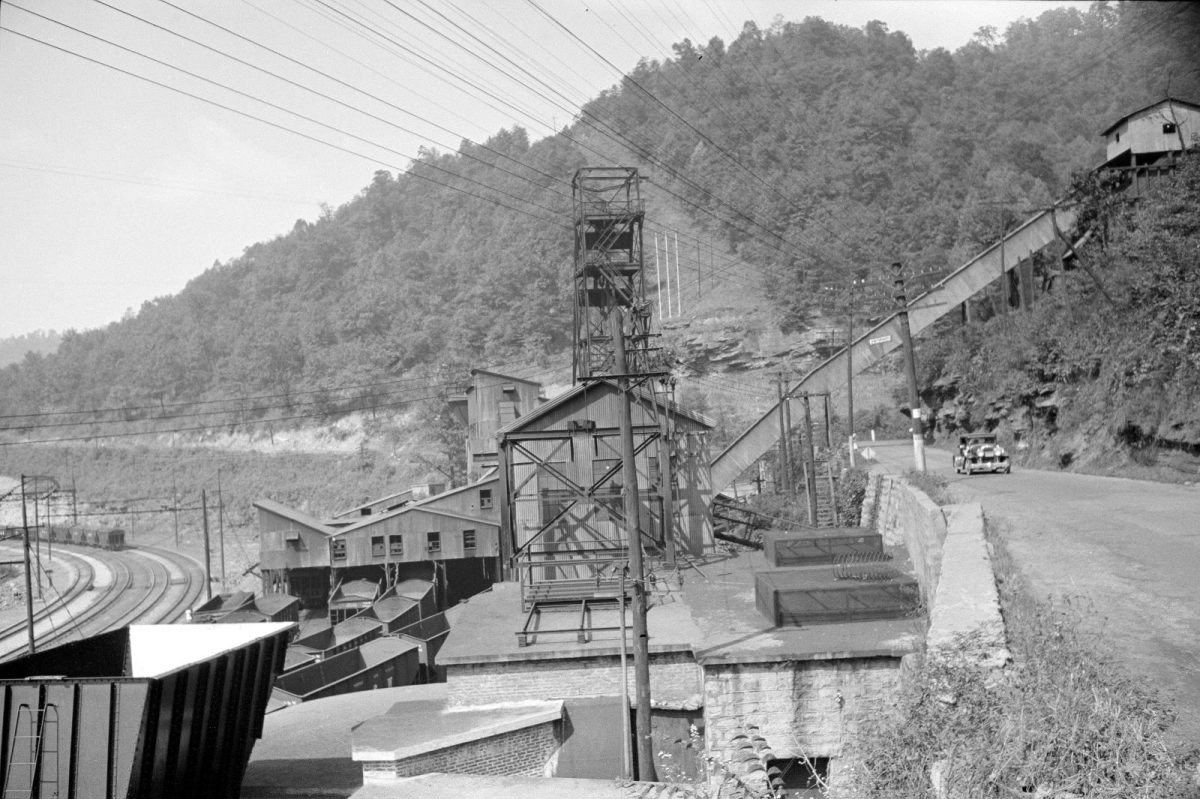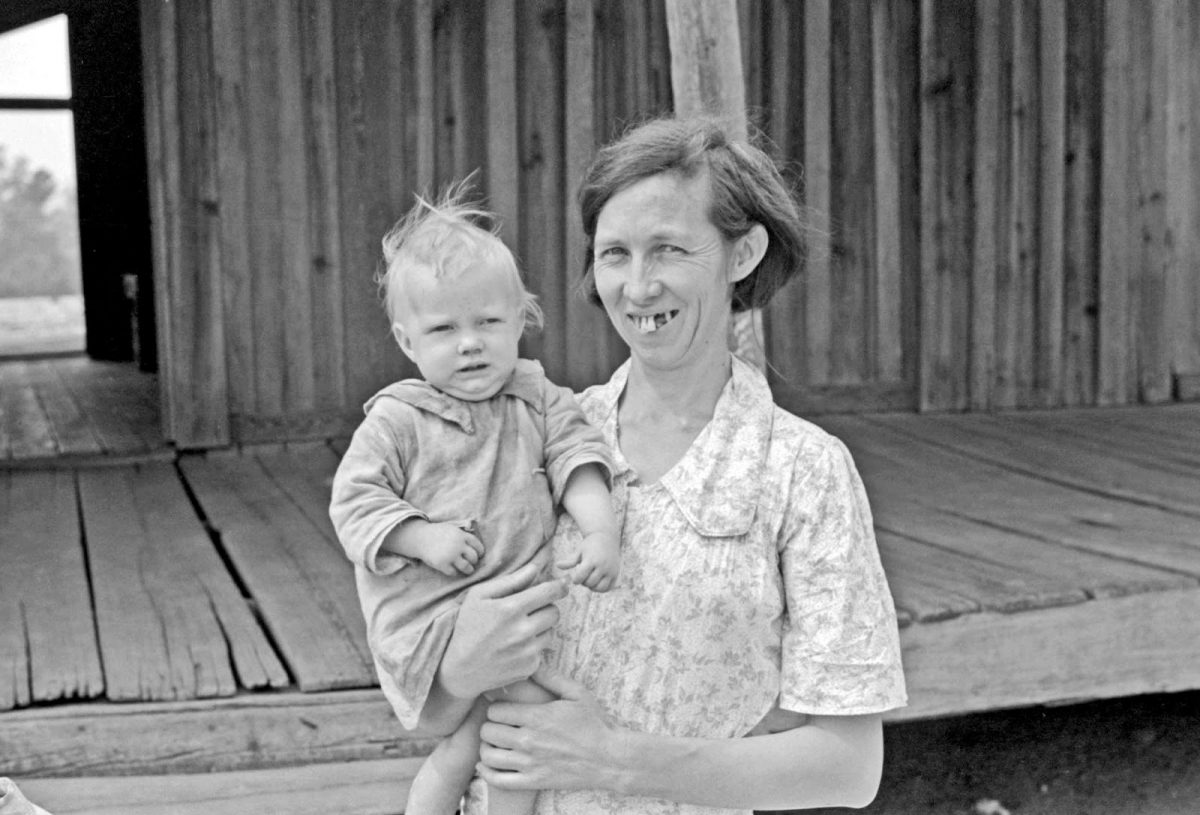The work was year round. Photographing men and women picking cotton, shucking corn, cutting tobacco leaves, citrus fruit packing, coal mining, or hanging around the theatres and halls on Beale Street, from where rock ‘n’ roll would one day come.
The photographer was Marion Post Wolcott (1910-1990). She was born in New Jersey, a June baby, her parents split when she was young. Post was sent to boarding school. Spent her holidays with her mother in Greenwich Village. Post found herself in the company of her mother’s friends: artists, writers, filmmakers, and photographers. It was hip before Beat. Her mother’s friends encouraged Post to seize the day, go live and discover what she wanted to do.
Post was into dance. She studied at the New School, where all the bright young things formed their very own counter culture. She drifted into teaching but found teaching was not as good as doing. Travelling across the Eastern Seaboard of America, she was acutely aware of the effects of the Wall Street Crash and the financial ruin that impoverished so many Americans. Post was lucky, she had the money to change her life. She went to stay with her sister Helen in Vienna. Together they studied photography under the tutelage of Austrian photographer Trude Fleischmann (1895-1990). In Vienna, Post saw first hand the brutal rise of National Socialists. Post and her sister returned to America. Her experiences in Vienna led Post to join the Anti-Fascist group.
Post had made a portfolio of work from her time in Vienna. She touted her work around different agencies. This led to work on newspapers and eventually a contract to join the Farm Security Administration as a photographer. Post’s remit was to document working life across America in the late 1930s and early 1940s.
Post documented the lives of Americans whose work was often back-breaking, thankless, and unknown to the majority of US citizens. In 1941, Post met Leon Oliver Wolcott, who was then Deputy Director of War Relations for the U. S. Department of Agriculture. The pair married and started a family. Post found it difficult to continue her photographic career while raising a family. She gave up to focus on being a Mrs. Post Wolcott.
Most of Post Wolcott’s work was largely ignored or forgotten until it was “rediscovered” in the 1970s. A series of exhibitions and books highlighted Post’s photographic career. At an exhibition of her work in 1986, Post said:
“Women have come a long way, but not far enough. . . . Speak with your images from your heart and soul.”
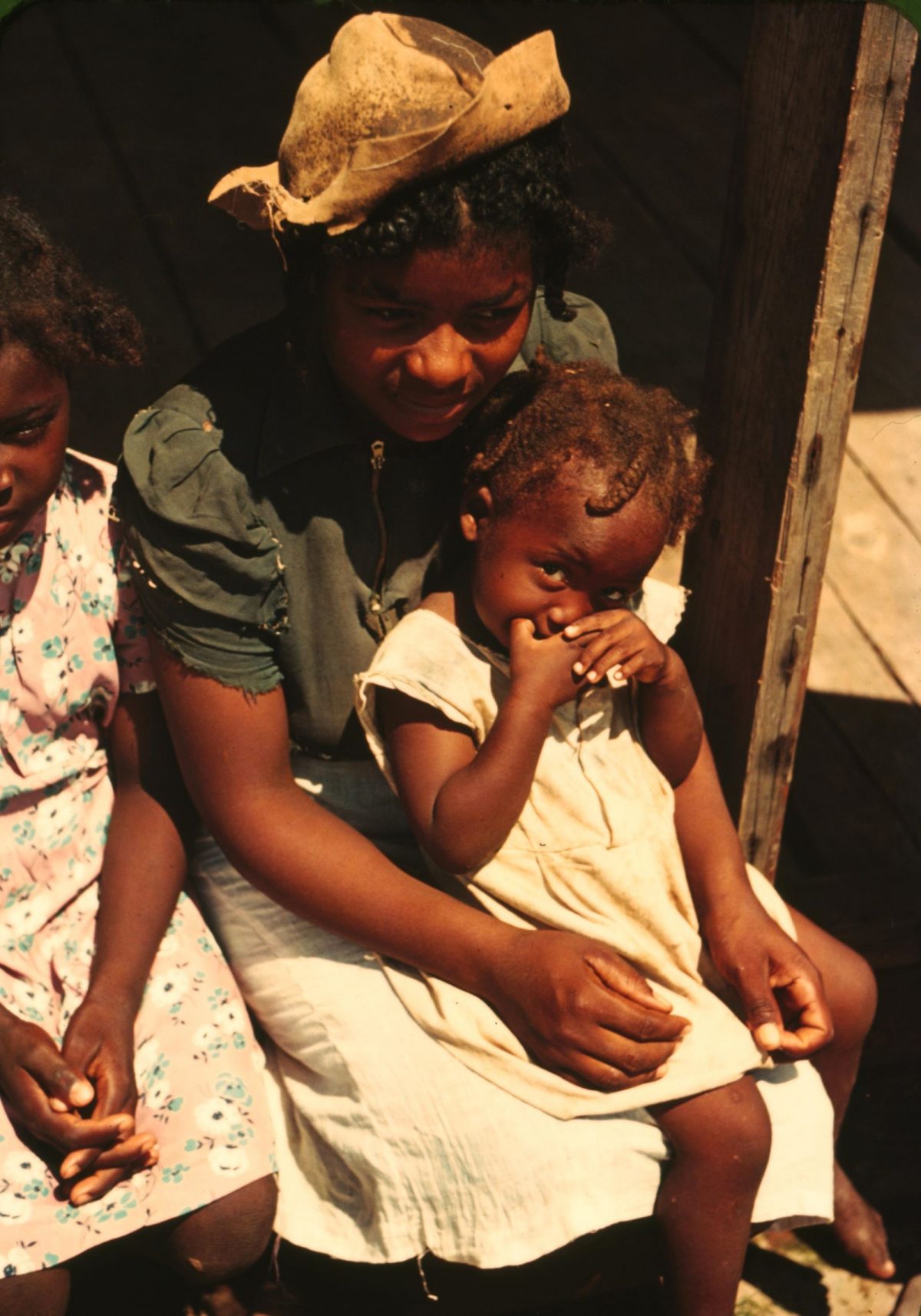
Three children sitting on the porch of a house, 1940.
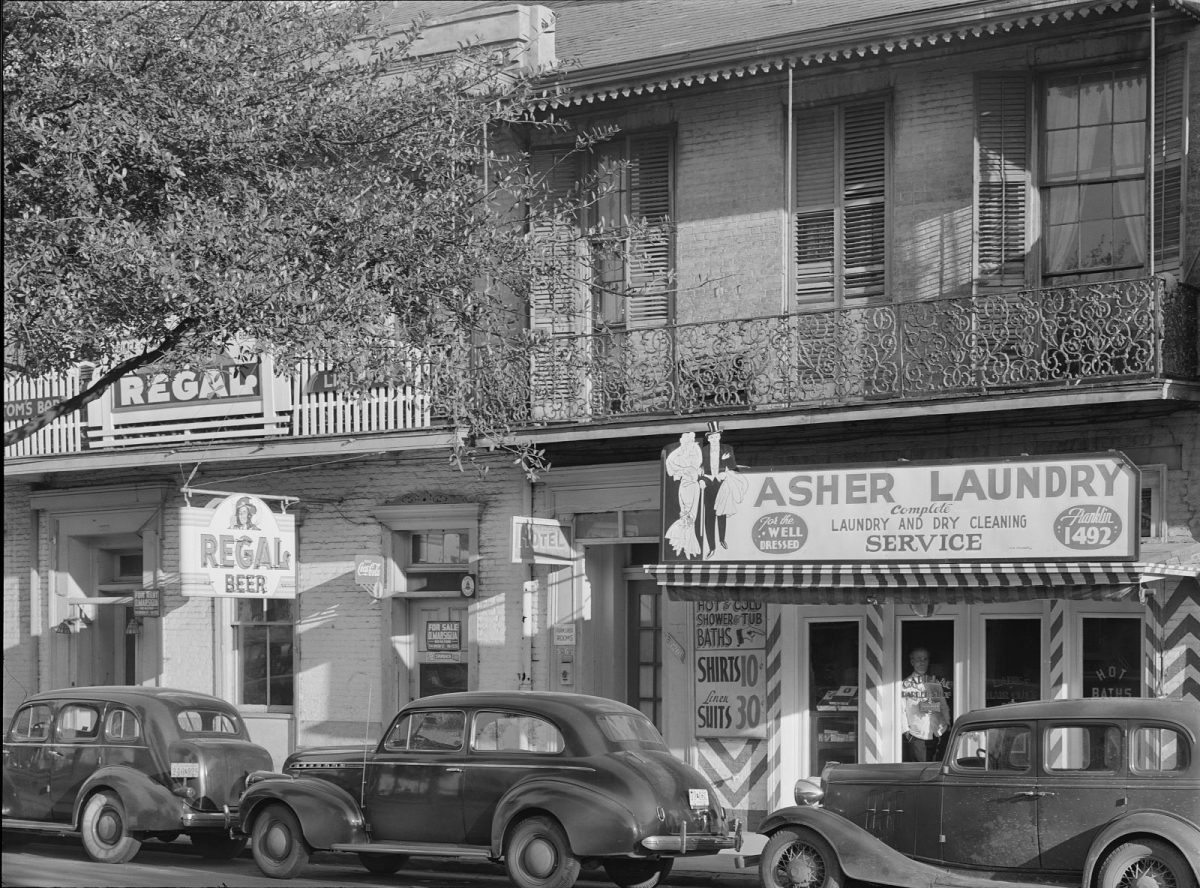
Asher Laundry, New Orleans, 1940.
![[Untitled photo, possibly related to: Payday, coal mining town, Omar, West Virginia] Contributor Names Wolcott, Marion Post, 1910-1990, photographer Created / Published [1938 Sept.]](https://flashbak.com/wp-content/uploads/2021/08/Untitled-photo-possibly-related-to-Payday-coal-mining-town-Omar-West-Virginia-Contributor-Names-Wolcott-Marion-Post-1910-1990-photographer-Created-Published-1938-Sept.-.jpeg)
Payday, coal mining town, Omar, West Virginia, September 1938.
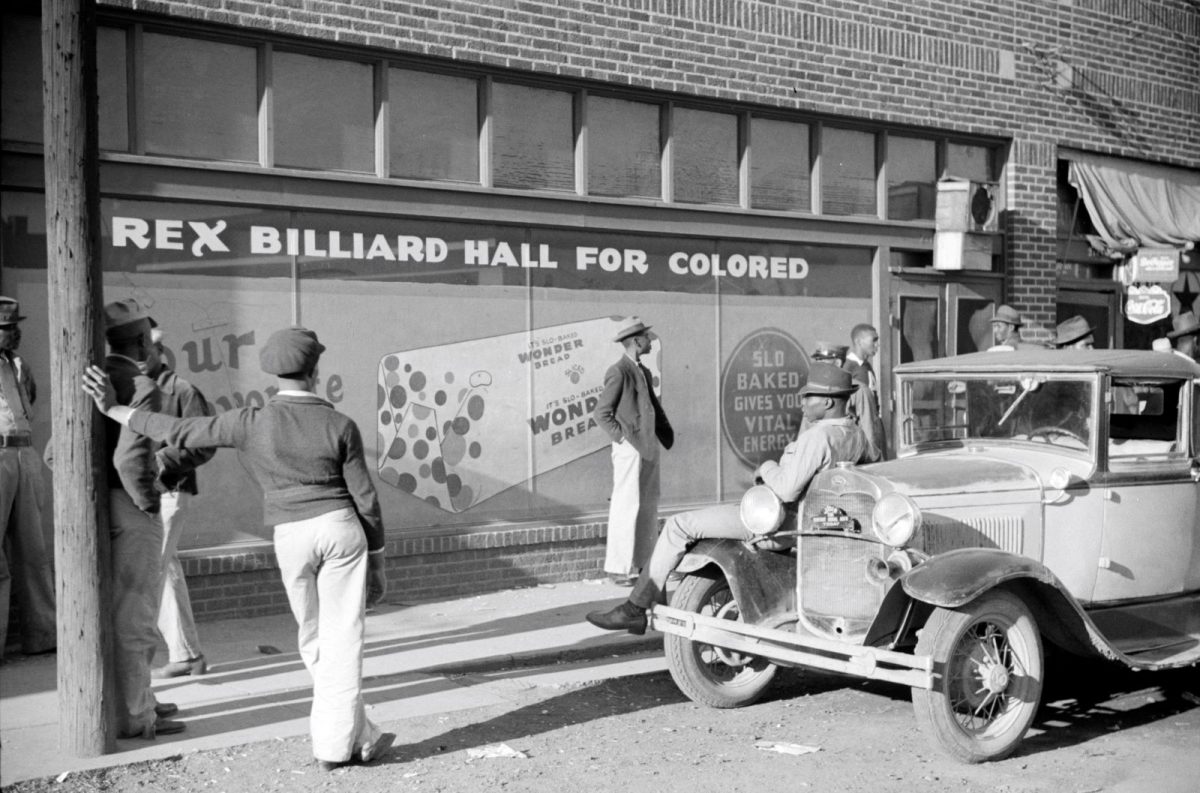
Beale Street, Memphis, Tennessee. Rex Billiard Hall for Colored, 1939.
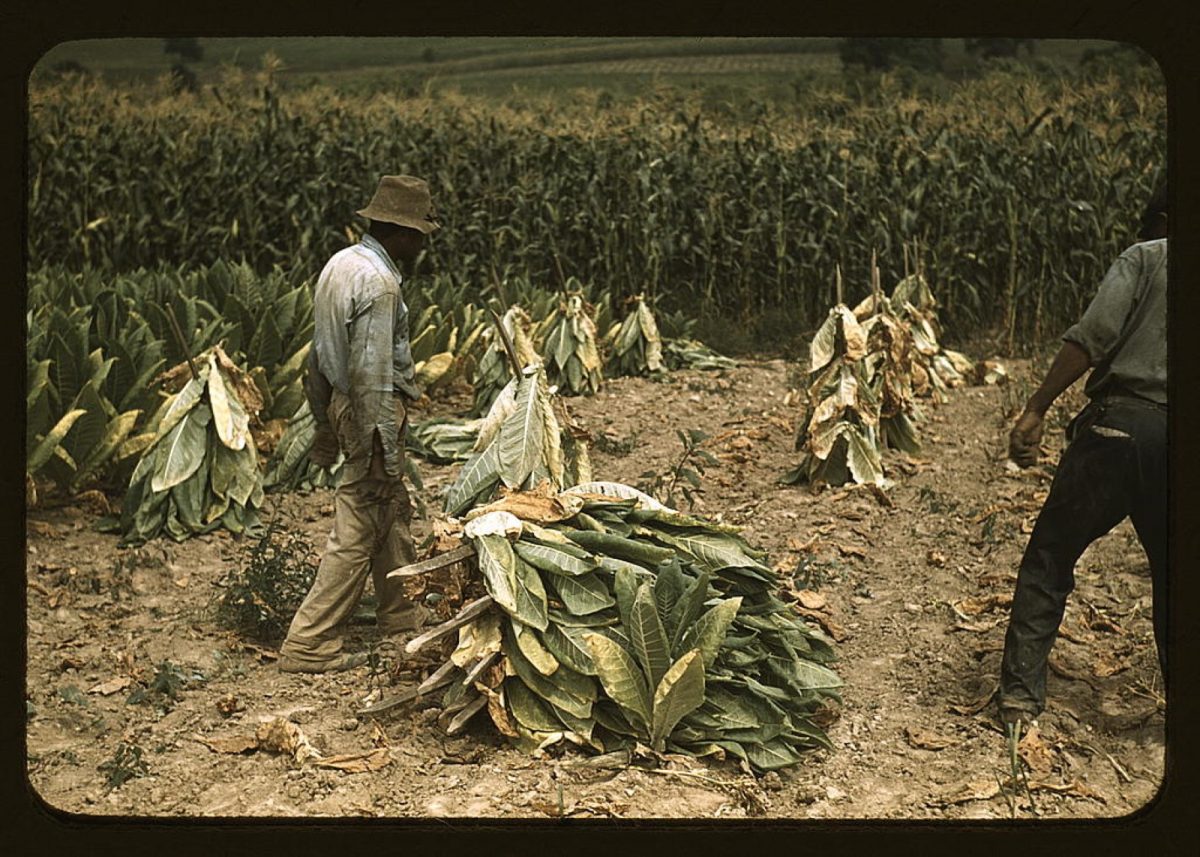
Tobacco workers at the Russell Spears’ farm, Lexington, Kentucky, 1940.
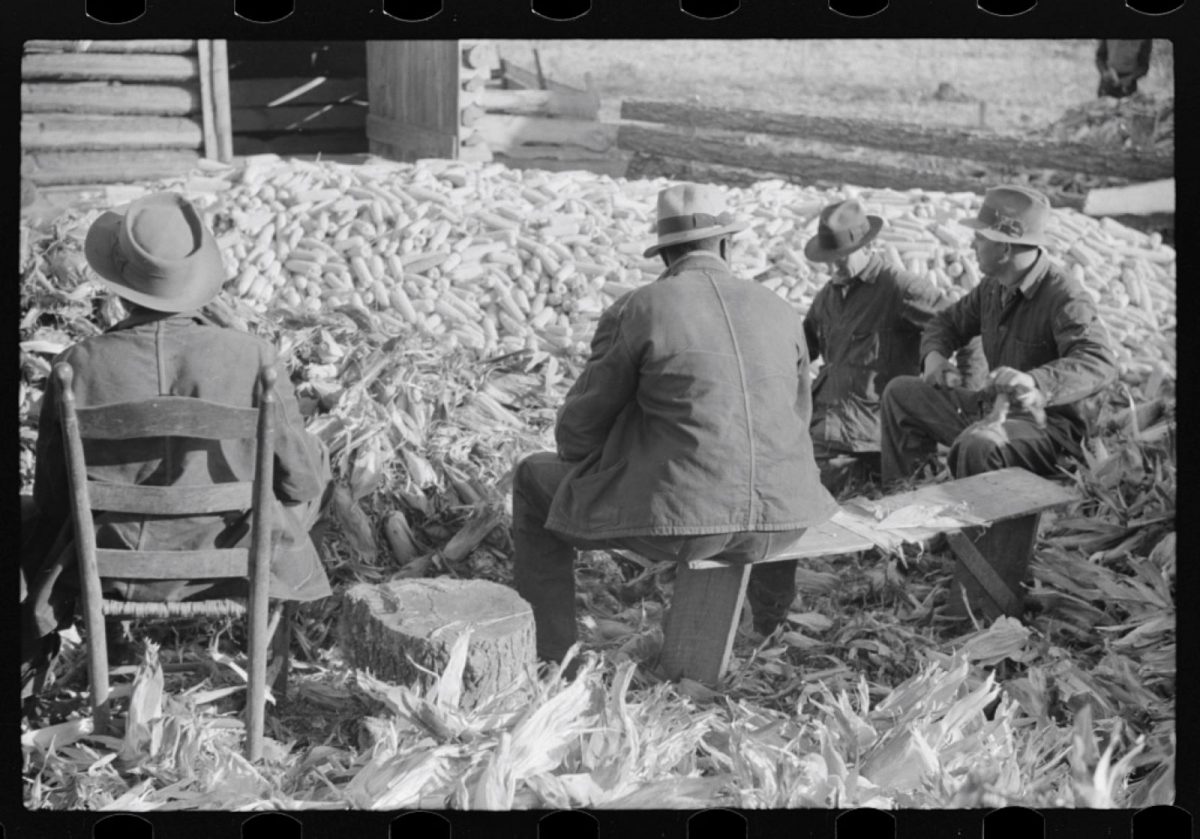
Corn shucking on Uncle Henry Garrett’s place, Tally Ho, near Stem, Granville County, North Carolina, 1939.
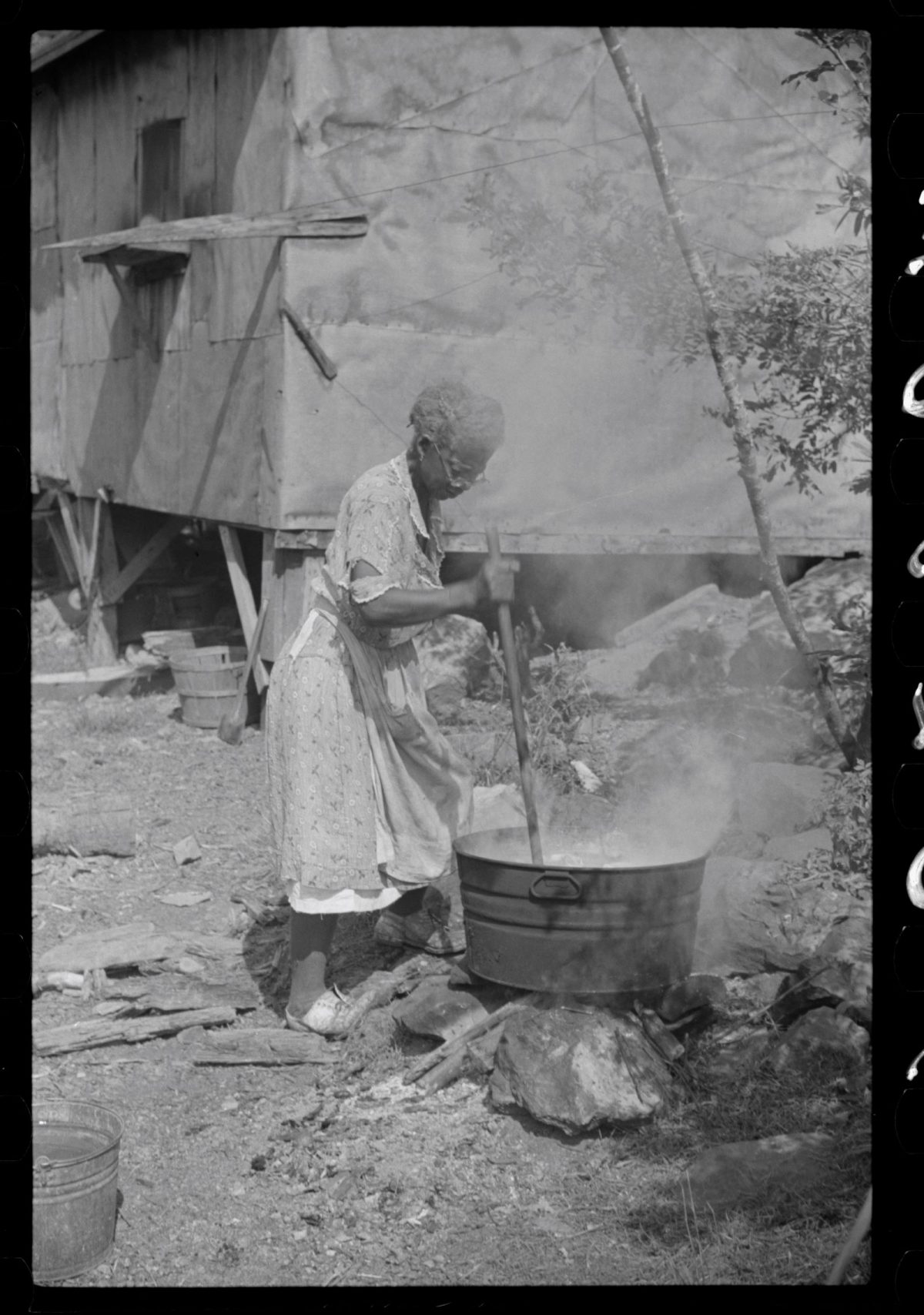
Woman washing clothes outside of shacks along the river, on the highway between Charleston and Gauley Bridge, West Virginia, 1938.
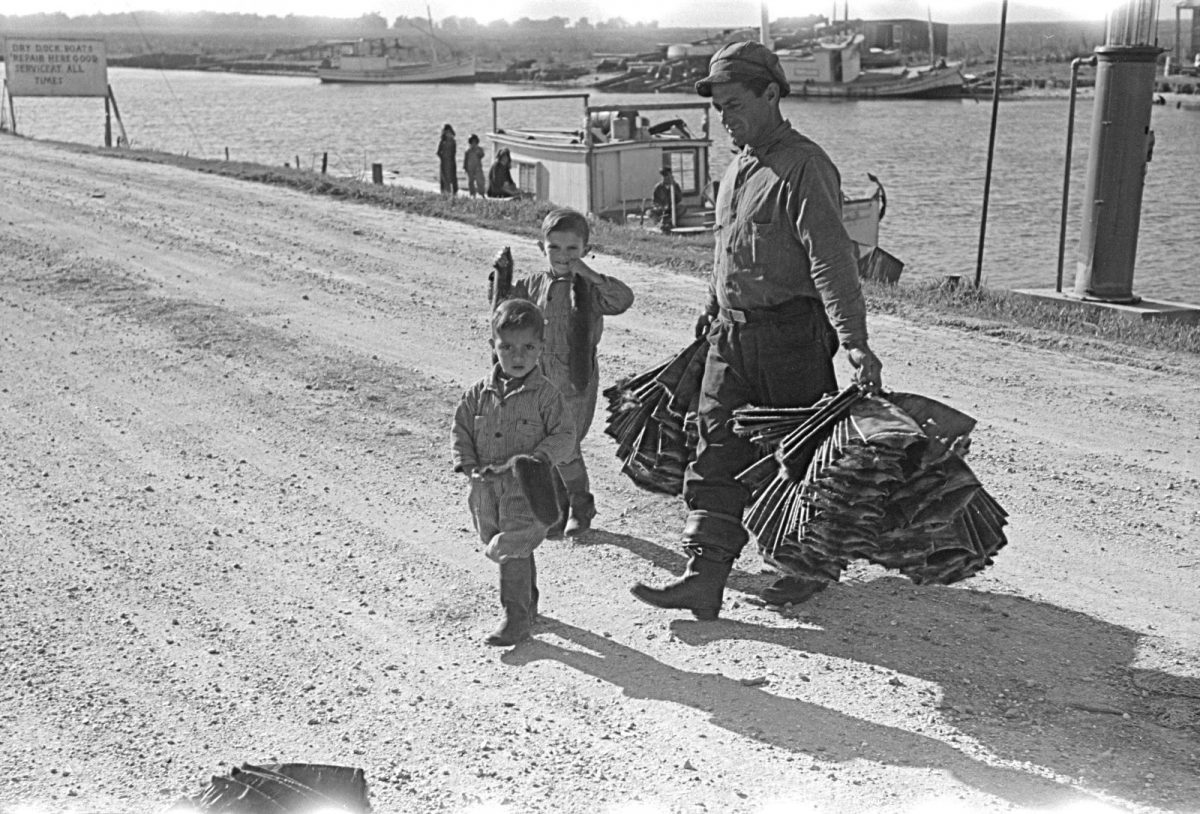
A trapper and his children taking muskrat pelts into the FSA (Farm Security Administration) auction sale held in a dancehall on Delacroix Island, Louisiana, 1941.
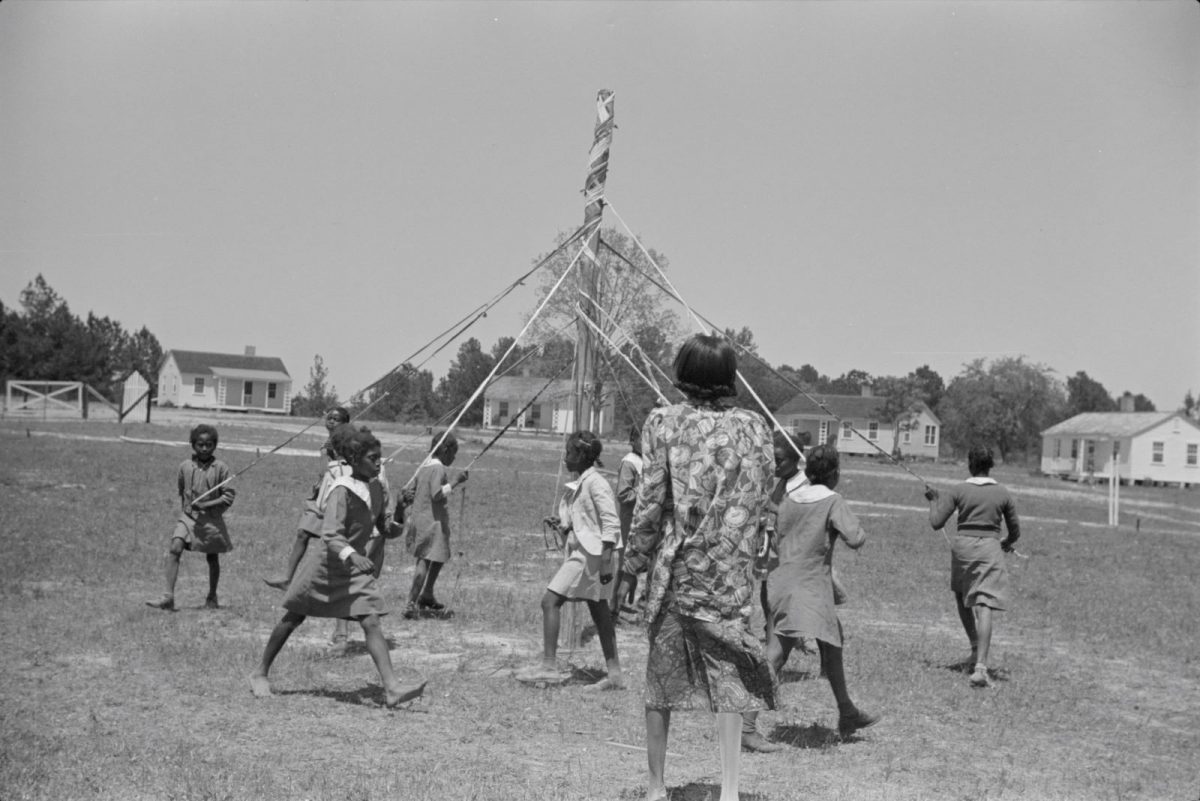
Children dancing around a maypole, Alabama, 1939.
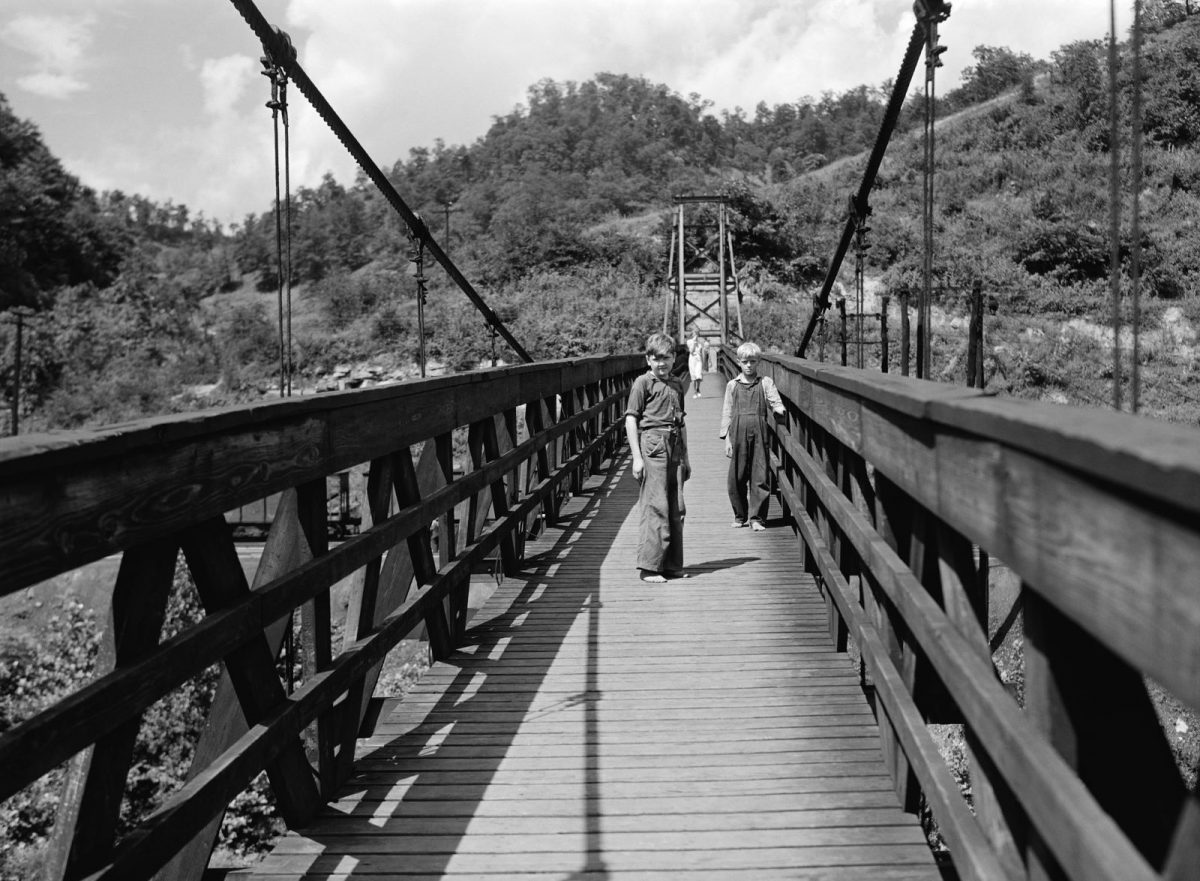
Children cross a swing bridge, Hazard, Kentucky, 1940.
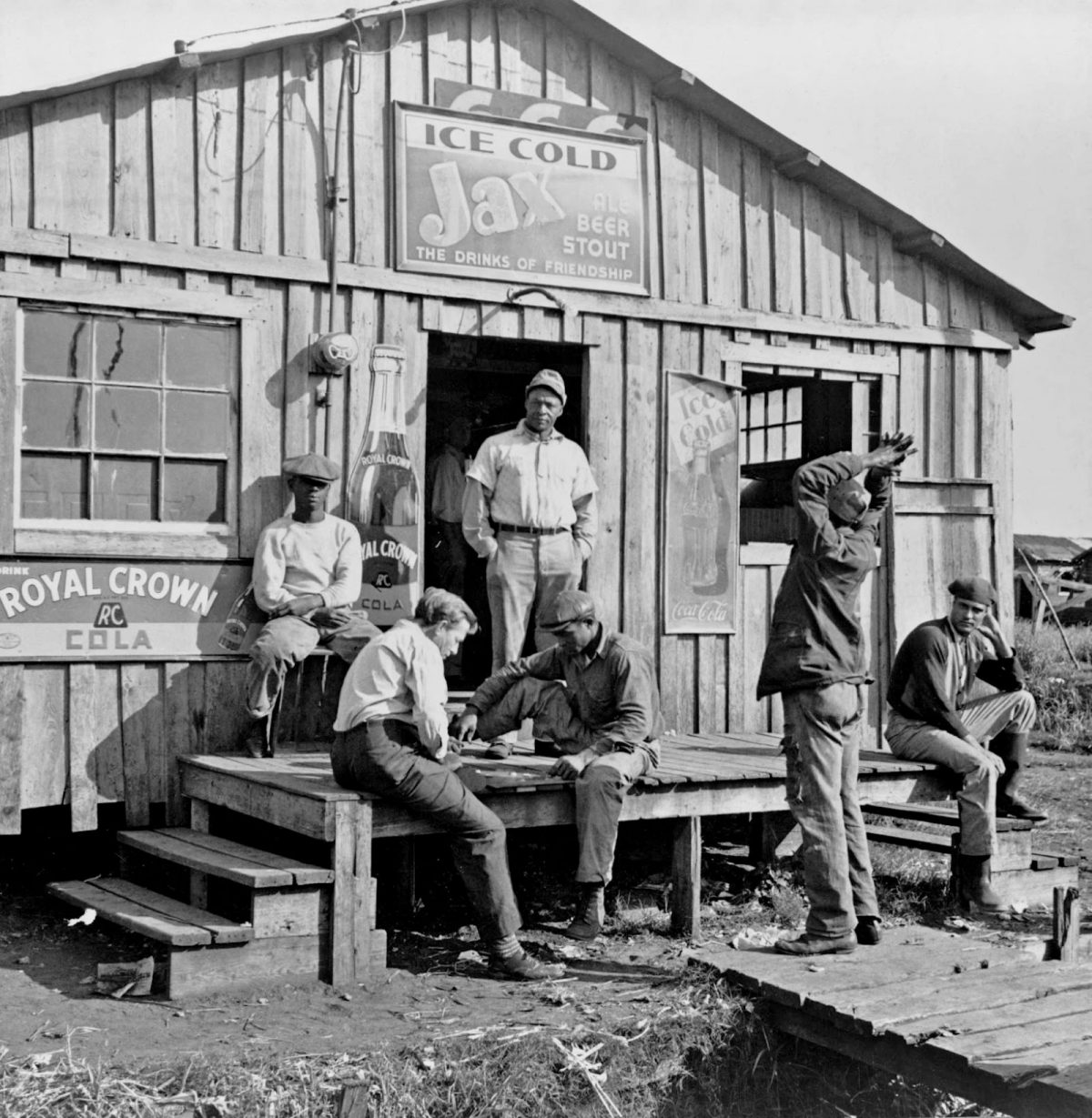
Migratory laborers playing checkers in front of a ‘jook joint’ during slack season for vegetable pickers. Belle Glade, Florida, 1941.
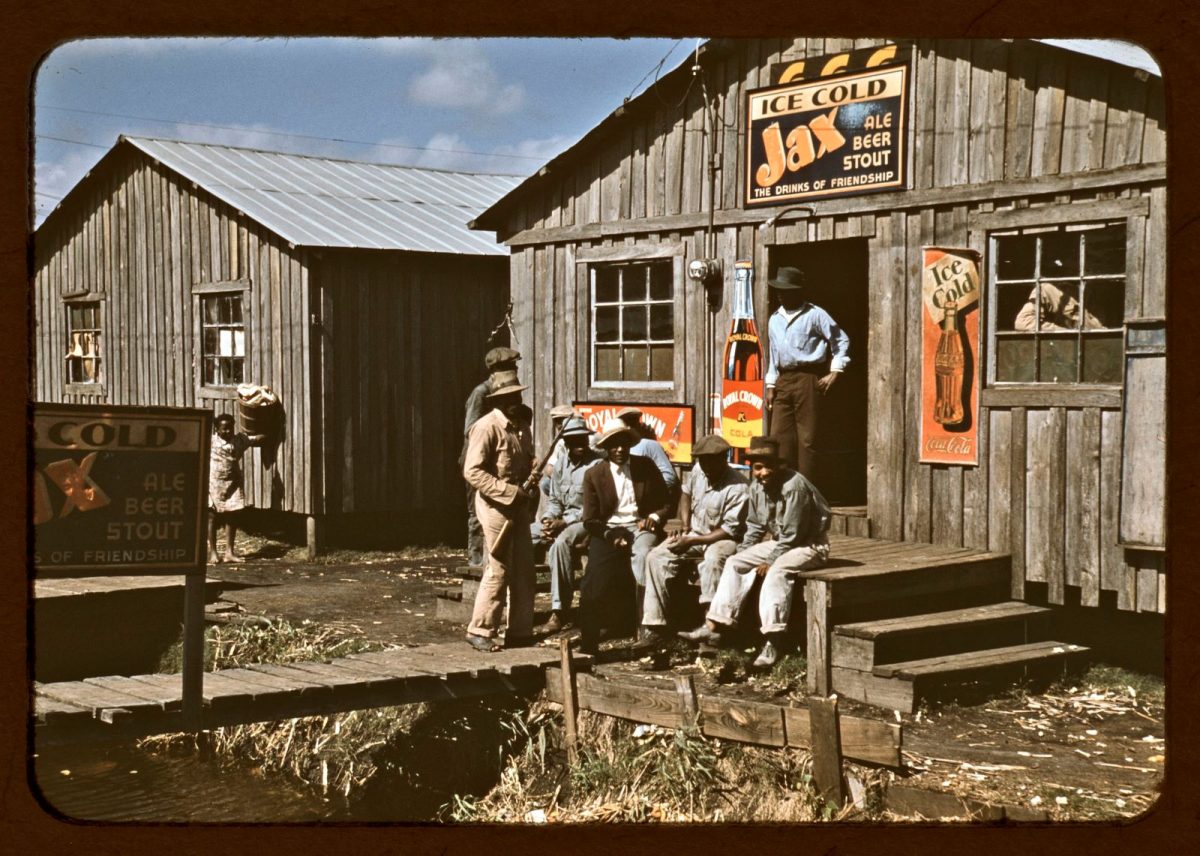
Migratory laborers outside of a ‘juke joint’ during a slack season, Belle Glade, Florida, February 1941.
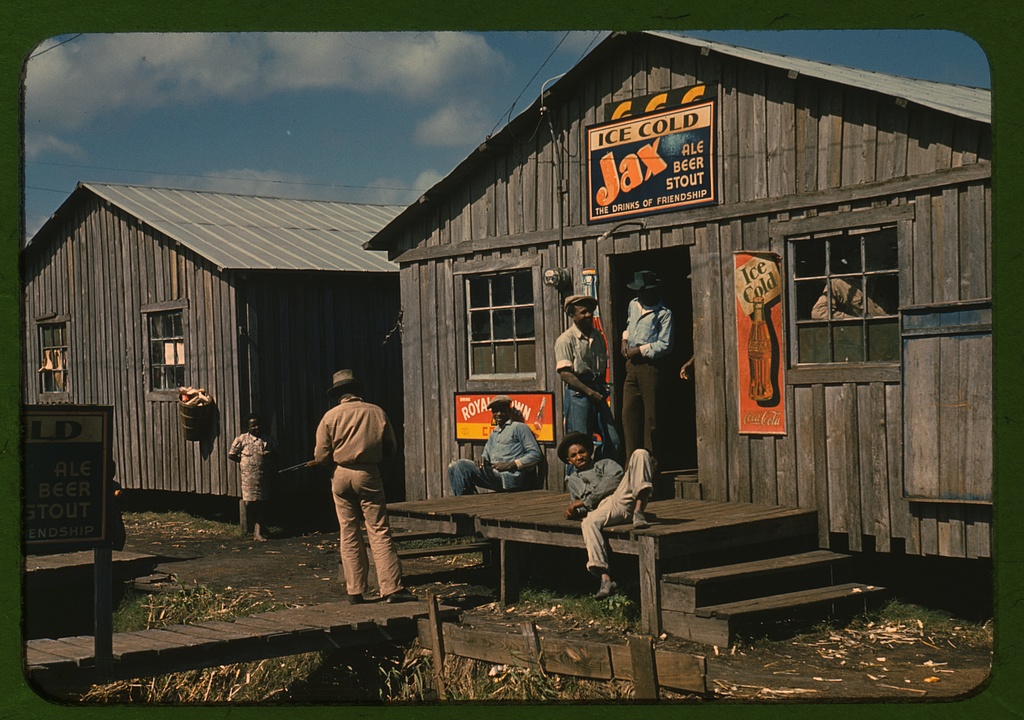
Living quarters and “juke joint” for migratory workers, a slack season; Belle Glade, Fla.
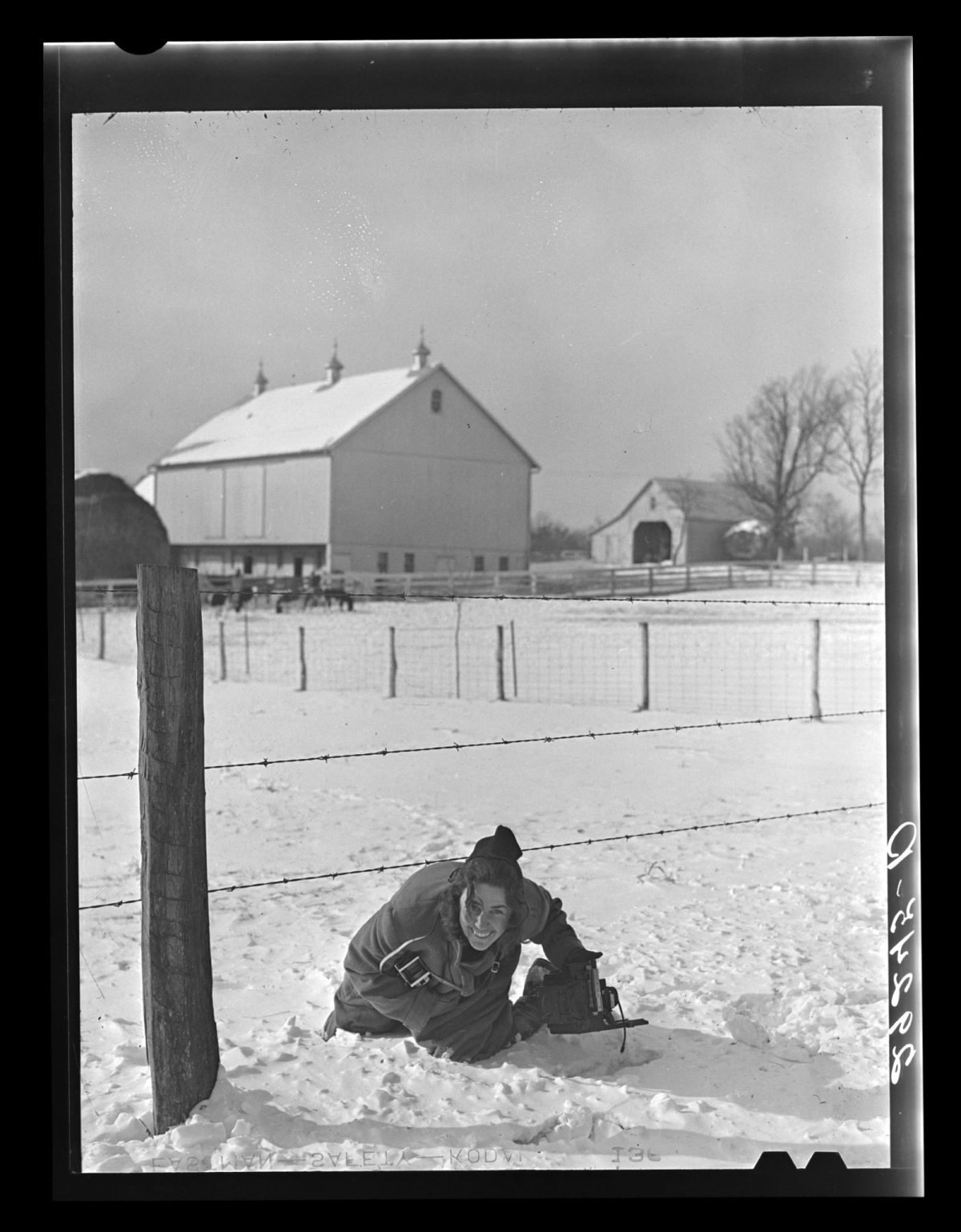
Marion Post Wolcott with Rolleiflex camera, Montgomery County, Maryland, January 1940.
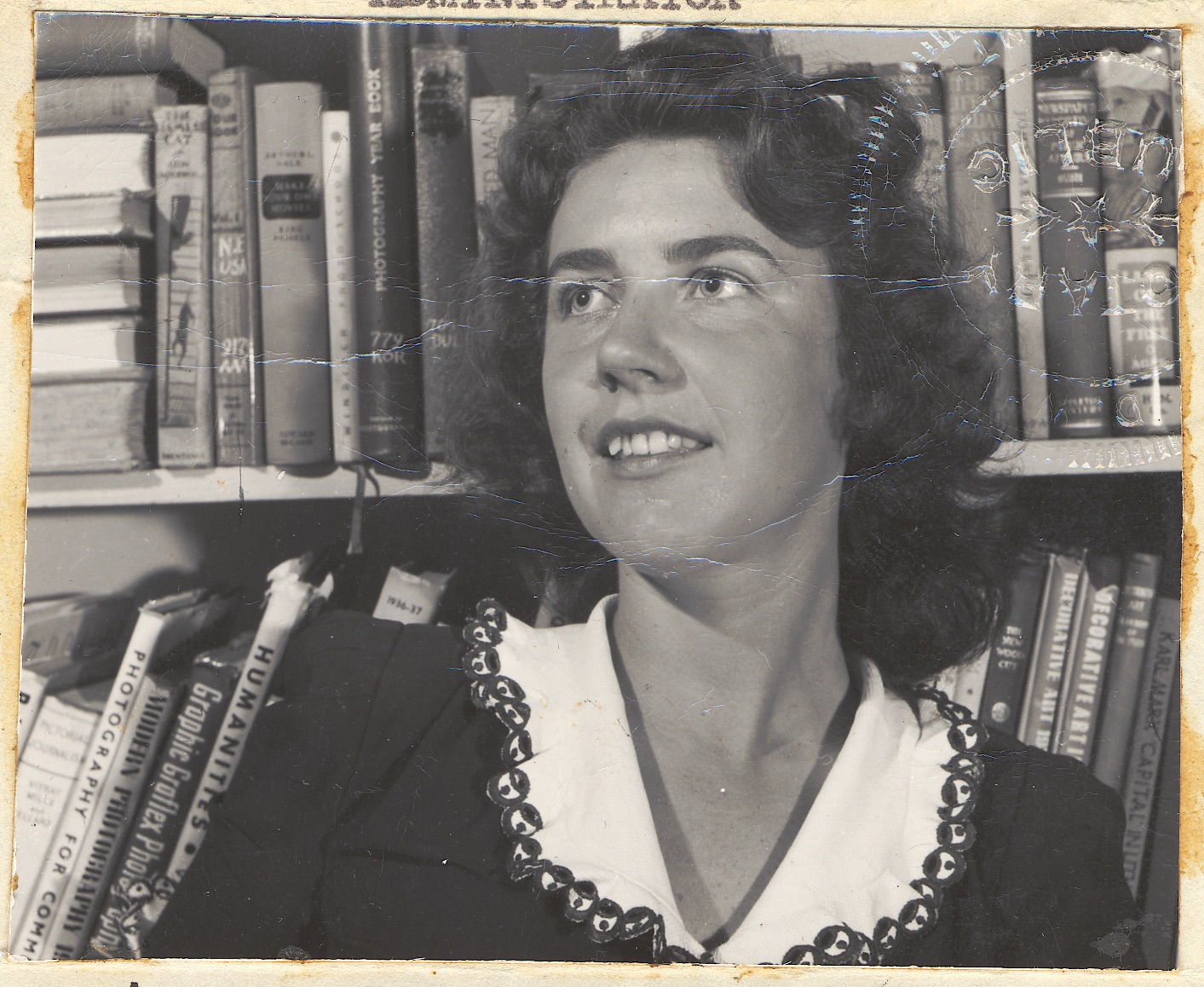
Would you like to support Flashbak?
Please consider making a donation to our site. We don't want to rely on ads to bring you the best of visual culture. You can also support us by signing up to our Mailing List. And you can also follow us on Facebook, Instagram and Twitter. For great art and culture delivered to your door, visit our shop.
